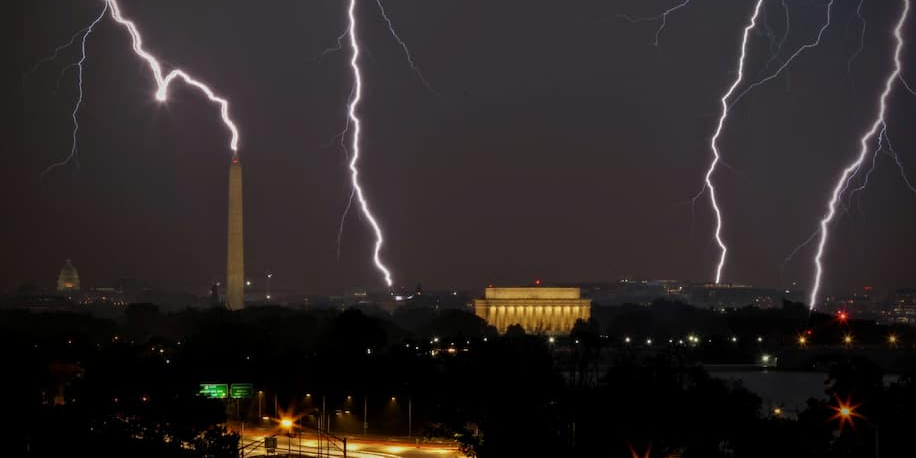When one reflects on the recent anniversary of the fall of the Soviet Union 29 years ago, it may be easy to feel vindication. Authoritarian regimes seem to have fallen from accepted fashion, the liberalization of the West all but permanent. We have grown used to taking comfort in the status quo, in democracy. But too often, the underlying tremors of national dissolution are hidden by the celebratory cheers of November.
In 1989, preeminent political theorist Francis Fukuyama boldly declared in the pages of The National Interest that we were entering the final evolution of human governance, the “End of History” as he would title his piece and later, his related work. It was perfectly understandable to maintain triumphant optimism at the time: all the signs pointed to its confirmation. History, however, rarely lives up to one’s expectations. Since then, notable Western nations have given in to trends which their opponents gleefully claim to be authoritarianism, fascism, or theocracy. In Europe, calls for the European Union to take on so-called “illiberal democracies”in Hungary and Poland have begun to grow. This begs the question, how far can the measure of subjective liberalism be stretched within the definition of democracy?
At its core, democracy is an instrument of interest aggregation, designed in varied institutions and procedures to best represent the will of its constituents. The problem with defining democracy as being “liberal” in nature is that not all populations fit our notion of liberalism, and by proxy, neither do their forms of democratic representation. When the EU associates correct governance with secularized policies, religious and socially conservative outliers like Poland and Hungary are quickly ostracized as undemocratic. Of primary concern are recent Polish abortion restrictions and the consitutional sanction of an indefinite extension to Hungarian Prime Minister Viktor Orban’s term in office. Are these developments illiberal? If one defines liberalism as the advancement of progressive freedom and equality, perhaps. These criticisms notwithstanding, if these changes are supported by the majority of the governed, they are by definition an actualization of democracy.
This broad definition does lead to some pressing questions of our own system of governance. If a candidate is able to be elected through the Electoral College without achieving the popular vote, is that by the same notion undemocratic? Oftentimes, gerrymandering allows for congressional and parliamentary leadership from both sides of the aisle to achieve positions of power absent popular consensus. These difficulties affect all parliamentary systems of representative government, a facet of nearly every modern democracy. How much will we forward this relativistic numbers game before we begin to doubt the current foundation of westernized governance?
A utilitarian view of democracy such as this will lead to long-term strains on national stability. If a consistent minority, or even majority, block of a given polity feels constantly opposed and overlooked, for how long will they participate in that particular experiment? This question hits a few thousand miles closer to home, with America seeing a surge of supporters for President Trump’s bid to overturn election results on baseless claims of voter fraud. Similar partisan responses have been recorded when faced with election losses in nearly every result in recent memory. What makes this election season different from previous years is the first coordinated legal effort to overturn the democratic will of American constituents. While our unprecedented current situation seems unparalleled, how often have midterm-elected oppositional governments utilized legislative processes to challenge the standings of current executives? I am certainly old enough to remember similar behavior from both parties.
Why was our national democracy able to withstand equally formidable stress-tests in the past? Governments exist on the basis of a populace’s willingness to accept the political legitimacy of a current regime. If a monarch serves their people just as well, if not better, than a democratic government, their citizens will accept their legitimacy. The eminent decline of those authorities begins when they try to manufacture a pseudo-popular consensus through the suppression of speech, arrest of dissidents, and other hallmarks of a military state. The Electoral College and similar forms of parliamentary governance continue to exist because both the victors and the vanquished accept them as legitimate, regardless of their inherent “democraticness.”
The increased separation between rural and urban, secular and religious, and old and young Americans threatens this national consensus that makes our democracy possible. In past periods of American history, we maintained a general faith in our founding ideals and our shared faith in institutions and God, regardless of what name or form they took. The increased secularization and demonization of our fellow Americans by way of political ideology or religious sect has accelerated our national and international fragmentation. In fact, the so-called “illiberal” nations of Poland and Hungary, despite international backlash, are part of the few nations that have embraced a national consensus that has paved the way for a strong identity and cause among their citizens.
That’s not to say that some aspects of liberalism aren’t beneficial for society, but as a nation we must push back against this rampant individualization in order to preserve our democratic experiment. To maintain a successful national identity, there must exist a balance between individualism and collectivism, theology and ideology, and patriotism and dissent. If we cannot strike this critical balance, we threaten to turn our fragmented consensus into a broken nation.

